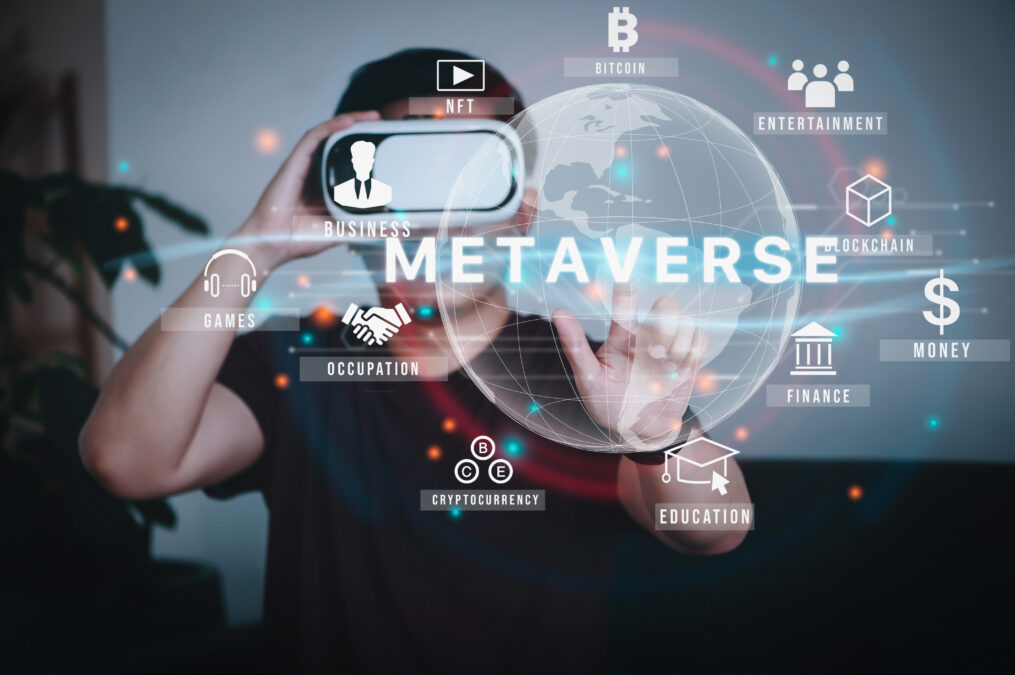In this article, we take a look at some of the most valuable non-fungible token (NFT) use cases for businesses
The topic of non-fungible tokens (NFTs) has been red hot lately, with the blockchain-powered infrastructure providing an alternative, decentralised way to sell and purchase art and other digital assets. But what can the technology offer to the B2B world? In this article, we explore some of the most valuable NFT use cases for businesses.
A rise in value
According to research from Ripple, NFT sales were reported to have topped $17 billion at the end of 2021, as use cases for NFTs have evolved beyond digital art. This has led to a bolstering of digital experiences and ownership for users.
“Already, NFTs have spurred new revenue streams and business models, with more players seemingly entering the space by the day,” explained Monica Long, general manager of RippleX, Ripple’s developer business unit.
“As interest in NFTs (and tokenisation more broadly) grows, so too will the development of functional use cases such as digital experiences, fractional ownership, real estate and carbon credit markets.
“Another use case Ripple is particularly excited about is tokenised identities to solve for key issues with trust, privacy and security for consumers. By decentralising an individual’s identity as an NFT, we can help businesses and consumers alike take back control of owning their stuff – critical for participating in the global financial system, especially for those who are excluded from it.
“By contributing to the growth and adoption of NFTs through initiatives like Ripple’s $250 million Creator Fund, for example, we can directly support a new era of tokenisation to transform the way people own, buy, sell, track and manage assets of all kinds.”
Blockchain technology in financial services
Understanding consumer behaviour
NFTs have also shown capability of showing organisations the interests of their customers, without marketing teams needing to scour Internet usage data. In time, NFTs could be utilised to learn more about what customers need, before a product is purchased.
Conor Svensson, founder and CEO of Web3 Labs, said: “I believe the true inflection point of adoption will be when the majority of smartphone users hold them. Whilst the technology is there to do this currently, only a minority of people keep NFTs on them. This will be key for true mass adoption.
“An NFT can represent any real-world or virtual good, as it stands the greatest value outside of financial for them is the communities that are forming around holders of them. This is a marketeer’s dream, as prior to NFTs it wasn’t easy to learn a person was interested in a product or brand unless they purchased it or engaged with it by signing up for email updates, liking Twitter posts, etc.
“The NFTs a person holds in a wallet can be viewed as an expression of their interests, and the fact that this is public information is a powerful tool for targeting individuals and communities. For instance, you can see who all of the BAYC or crypto punk holders are and create NFTs that are exclusive to those holders, or create events where only people with these NFTs can join. This opens the door to finding new communities to engage with that have formed around NFTs, that you believe may be aligned with your products or services.
“We will also see NFTs being used far more broadly across businesses and by consumers as a tool for attestation. For instance, if I sign up to a membership-based service, the provider of that service can provide me with an NFT which I can use as proof of valid membership. Or perhaps if I need to prove I have a valid travel insurance policy, an NFT could be issued by my insurance provider. NFTs can also be used to represent legal agreements between organisations or deeds to a property. This list is almost endless of where it will extend to over the coming years, and I believe we will see virtually no industry untouched by NFTs.”
Aiding testing of 5G
Another NFT use case for businesses relates to the rise in 5G adoption. The process of digitising assets facilitates the collection of attributes in a digital asset management platform, which leads to the creation a digital twin of each asset. This, as Maria Lema, co-founder of infrastructure asset marketplace Weaver Labs explains, can lend itself well towards 5G testing.
“Once assets have been digitised, NFT contracts can be used to pass on ownership of these assets, which can be monetised,” said Lema.
“Digital twins can evolve as they interact with each other and intelligently de-complexify any industry vertical where applied. This eventually results in the formation of a unique decentralised ecosystem that can be scaled in relation to a wide range of markets such as telecommunications.
“Digital twins offer companies the opportunity to test out new 5G environments and conduct maintenance on existing rollouts without significant disruption. By digitising each asset of the supply chain, Weaver Labs’ solution, for example, facilitates the physical manifestation of the telecoms supply chain, making it easier for the customer to consume, scale & commercialise networks.”
Why do digital twins need the edge?
Virtual investment
Additionally, NFTs can prove to be a useful tool in facilitating virtual investments, a trend that’s set to continue rising as organisations transition towards metaverse infrastructure.
“I believe NFTs are not only art which will be used in the metaverse, but it is more likely that individuals will use these as a virtual investment vehicle,” said Ana Lucia Salazar, senior sales manager at IDNow.
“According to the FATF guidance, because this would be used as an investment, or potentially a way of payment, they will fall under the regulatory framework and practices like KYC and AML must be implemented by these companies. I believe that as the NFT industry grows, regulators will turn very quickly to them.
“We are seeing that some of the NFT platforms have started to proactively implement these practices and we expect more companies will follow.”








